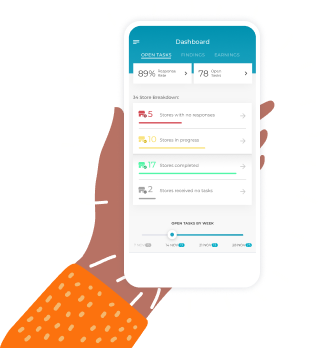Is there a role for artificial intelligence in luxury retail? What sets luxury retail apart? Luxury can mean many different things to different people, but in retail terms it’s all about high-end, more expensive product from highly trusted and respected brands. But it’s not just about that. The brick-and-mortar experience in luxury retail is characterized just as much by top-quality, personalized customer experiences as it is by pricey merchandise. For many years now, customer service and operations teams at luxury outlets have worked in tandem to deliver higher quality service to shoppers, and just like everywhere else in the brick-and-mortar space, they’re turning more and more to technology in order to bring the best to their consumers.
A Personal Touch
Luxury products, by their very nature, cost more than their more mass-market counterparts. These products are characterized by the very best in materials and design, and often feature manufacturing practices to match. When a customer enters a store looking for an Hermes bag or a pair of Louboutin’s iconic red-soled shoes, they’re prepared to get the very best with a price to match. As such, they expect the shopping experience to be similarly top-notch.
For years now, luxury retailers have had reputations for offering custom, but low-tech experiences driven by well-trained associates who can anticipate and fill needs with unparalleled speed and accuracy. Conversely, tech is often seen as a way to increase volume, an element which asks customers to interact with it instead of coming to the customer and asking each what it can do for them.
Contrary to popular belief, the best way to improve those experiences is not a universal, one size fits all approach. Rather, personalization leads to more satisfied customers, who are more likely to come back. What do we mean by personalization? Well, it’s about delivering what customers want and meeting their needs, anticipating their desires sometimes before they even walk in the door. Personalization focuses on creating unique, custom engagement with brands and fostering return business, and in 2018 that means leveraging every available technology to get products when and where consumers want them whether it’s online or at a brick-and-mortar. Millennials are making up a larger and larger portion of the luxury retail consumer base, and these shoppers expect seamless integration between the online and in-store experiences. It’s not enough to simply have stellar offerings with one or the other. With smartphones, smart speakers, and online shopping reaching ubiquity, both need to work in sync to really deliver on customer expectations. Artificial intelligence in luxury retail is increasingly being used to accomplish this goal.
AI and the Human Element
The presence of machine learning and artificial intelligence in luxury retail stand poised to bring about a sea change. Nowadays, retailers are constantly gathering data on customer trends, buying habits, and inventory patterns, and there’s several new and interesting ways this data can be used to better serve customers. New AI features pioneered by Farfetch in association with Gucci allow shoppers to use their smartphones to receive custom product recommendations from staff based upon data gathered. Meanwhile, in more mainstream outlets, retailers such as Sephora offer not only custom suggestions driven by machine learning, but whole product lines designed to take advantage of this synergy. Outside the store, marketing materials can be better crafted and targeted to specific customers.
Similarly, augmented reality displays integrated into mirrors can provide additional vectors for personalization. The display can make educated guesses based on analytics and data gathered from in-store smartphone apps designed to assist in the shopping experience. These design elements can add a kind of glamour to the store, by distinguishing a more technologically advanced and trendy luxe retailer from a more conventional or down-market one. After all, why settle for a dumb mirror when a smart one can suggest an even better piece to add to your collection?
However, not all of this is flashy new customer service features. Many of the most important and useful technologies utilized by retailers are almost invisible to consumers. Luxury retailers tend to keep smaller inventories in stock than more mainstream outlets. Machine learning and artificial intelligence in luxury retail can help keep the right items available, ensuring that customers can get what they came into the store for. It can also aid store associates and operations teams in deciding which items to center in their displays and sales efforts, offering the right item at the right price point to the right customer. If anything, perhaps the finest luxuries are all but unseen.
To read more about things like VR and AR in retail and experiential retail click here. If you’re curious about how machine learning can help improve store operations, read more here and here.


